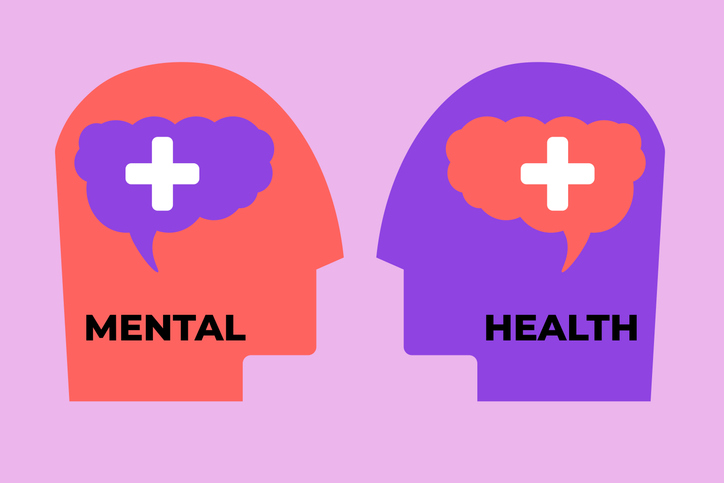You May Not Be Ready for Kids Now, but That Doesn’t Mean You Shouldn’t Be Preparing Healthwise

By Joy Stephenson-Laws, JD, Founder
When people of reproductive age talk about how they are not ready for kids, it’s usually due to finances, a lack of time or not having enough space in the home. You generally don’t hear people say that their physical and mental health are not where they need to be. Preconception health has pretty much fallen to the wayside, however, it should probably be the most important factor to consider when planning to build your future family. Of course you need money to raise a family, but you cannot put a price on your health or the health of your child.
“Taking care of your health before trying to conceive is crucial for both partners. But even people of reproductive age who may not be thinking of having children anytime soon might still want to improve their preconception health,” according to a recent Medical Xpress report that discusses ways both men and women can improve their health before attempting to conceive.
“Doing so sets the stage for a healthier future for all, including any future generations.”
So 2024 may not be the year you want to conceive, but there is no time like the present to prepare yourself by being proactive about your health. Even if you decide not to have children at all, preparing your body is great for your health in general. Let’s go over some recommendations on how to be proactive about preconception health whether you are male or female.

Diet is important when it comes to preconception health.
“Studies have shown that a consistently healthy diet, up to three years before pregnancy, is associated with a lower risk of gestational diabetes, preeclampsia (a condition which causes high blood pressure during and after pregnancy) and pre-term birth,” reports Medical Xpress.

So if you don’t want to have children for at least another three years, now is stil the perfect time to really start focusing on maintaining a healthy diet and weight. Men are also not off the hook. A healthy diet can improve male fertility as well as sperm quality.
Check out these previous pH blogs:
- Fertility & Food, What Men Need to Know
- Men: Here is How You Make Sure Your Sperm Can Make Healthy Babies!
- There’s a Fertility Crisis. How Men, In Particular, Can Be Proactive
- Lack of Adequate Protein in a Man's Diet May Affect Baby’s Heart Health
Get moving.
“During the preconception period, it's recommended men and women aim to get between 150-300 minutes of moderate-intensity physical activity or 75-150 minutes of vigorous activity per week. But any physical activity is better than none, so find activities you enjoy doing,” reports Medical Xpress.
(Exercise May Help You Overcome Fertility Issues)
Physical activity aids in preconception health by helping both partners maintain a healthy weight. Exercise may also improve sperm quality.
Cut out alcohol and nicotine.
I’ve heard many people say “it’s not that big of a deal” if you drink or even smoke up until the moment you have a positive pregnancy test. The Medical Xpress report advises that both the male and female abstain from alcohol and nicotine at least six months prior to conceiving. Smoking is bad for health in so many ways that I think are obvious (lung and other cancers), but you may not know that nicotine can have a negative effect on both sperm and egg quality.
Make mental health a priority.
I love this recommendation! Believe it or not, it is important to be in a healthy mental state when trying to bring a new life into the world. Improved mental health can mean improved fertility and make both partners well prepared for the stresses of pregnancy and planning for a family.

Check out these prior pH blogs about mental health:
- If You Are Depressed, A Vitamin D Supplement Could Be Life-Saving
- Have The Blues? Consider Ocean Therapy
- Nutritional Help to Fight Depression in Women
- Can’t Get Depression Out Of Your Mind? Get Outside
- The Real ‘Happy Meal’ May Be Fruits and Vegetables
- Ways to Deal With Depression That Won’t Ruin Your Health in the Process
- Your Diet May Be Why You’re Depressed
Finally, I highly recommend that you routinely take specialized nutrient tests, which can determine whether you have any nutritional imbalances. Being nutritionally balanced is also good for preconception health. If you do have any imbalances or deficiencies, a competent healthcare professional can work with you on making the necessary dietary changes and possibly recommend quality supplements you can take.
Enjoy your healthy life!
Disclaimer: This article is not intended to provide medical advice. Please consult with your doctor or another competent healthcare practitioner to get specific medical advice for your situation.
The pH professional healthcare team includes recognized experts from a variety of healthcare and related disciplines, including physicians, attorneys, nutritionists, nurses, and certified fitness instructors. This team also includes the members of the pH Medical Advisory Board, which constantly monitors all pH programs, products, and services. To learn more about the pH Medical Advisory Board, click here.







